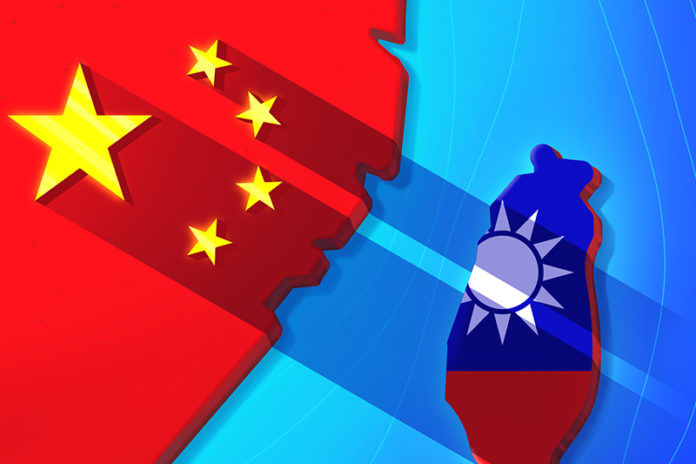The Chinese government is mad about House Speaker Nancy Pelosi’s visit to Taiwan. Really mad. It fired missiles over the island and sent fighter jets, bombers and warships into the surrounding area and vowed that it would punish “any invaders who would wreck unification of the motherland, and would show no mercy.”
It was, The Washington Post reported, “an unprecedented show of force.” Maybe President Xi Jinping carried it out in the hope that he can terrorize Taiwan and the U.S. into acts of appeasement. Or maybe he was conducting a dry run in preparation for an attack on Taiwan that he intends to undertake sooner or later.
Either way, he’s making a big mistake. Xi’s regime has more to lose than to gain from trying to intimidate or conquer the self-governed province. Already, his efforts are backfiring, to the detriment of China’s long-term interests.
If Beijing would like to displace the U.S. as the dominant power in the western Pacific, this is the wrong way to go about it. Xi may hope to frighten neighboring countries into submission, but his aggressive policies have had the opposite effect.
President Joe Biden has expanded the American commitment, affirming that he would use military force to defend Taiwan from an attack. Public opinion in Japan and Australia has moved overwhelmingly against China. The nations of the “Quad” — the U.S., Japan, India and Australia — have upgraded their military cooperation with a wary eye toward Beijing.
Everything the Chinese government does seems designed to sour the people of Taiwan on reunification with the mainland. Its oppressive measures in Hong Kong, whose Western-style freedoms it had promised to respect at least until 2047, have made it painfully obvious what they could expect from mainland rule.
Xi may regard having his way with Taiwan as so critical that he has to do whatever it takes to bring it about. It’s been generally assumed that China has no plans to invade the island anytime soon. But it was generally assumed that Russia wouldn’t invade Ukraine last winter, and it did.
The fate of that invasion ought to deter China from launching a full-scale attack on Taiwan.
Armed with a vast array of American weaponry, from fighter jets to Patriot missiles, Taiwan’s military may not be able to win, but it can make Beijing pay a heavy price. If the U.S. intervenes, the price to China — and the dangers — would be greater yet.
Even a low-cost victory would be a dubious achievement, with no obvious benefits. In the first place, China would be saddled with ruling a uniformly hostile population of 23 million people who are accustomed to both democracy and de facto independence. It would be the equivalent of an imperial conquest, not a fraternal reunion. Years of unrest and violence could ensue.
In the second place, it would likely erase much of the island’s economic value. China is highly dependent on Taiwan for the most advanced semiconductor chips. Reuters reported that the plants where these are made “could easily become a casualty of the fighting, severing the supply of chips to China’s vast electronics industry.” Taiwan would also be abruptly cut off from the world economy, crippling its productive sector.
For a country as dependent on foreign trade as China, a war could be ruinous. The U.S. and other countries would impose economic sanctions that would be a drag on the Chinese economy, which has already stalled. Exports, which have powered China’s economic rise, would go begging. At least some Western corporations operating in China would do what they’ve done in Russia — get the hell out.
The world response to the Ukraine invasion, writes Ohio State University scholar John Mueller in Foreign Affairs, “is not so much about winning as making sure that the country that started the war is far worse off than if it had not done so. That has already been substantially achieved.” It would likely also be achieved against China if it invaded Taiwan.
In the 21st century, threatening war and embarking on war are a terrible way to achieve prosperity, stability, security or international influence. Putin’s experience has reaffirmed that elementary truism in ways that Xi would be supremely foolish to ignore.
Letting Taiwan continue its self-government and its partnership with the U.S. may not be something that Xi can easily swallow. But he should realize that it’s the worst option, except for all the rest.






























